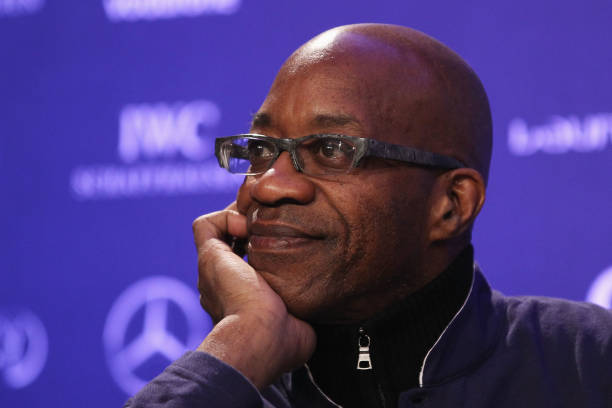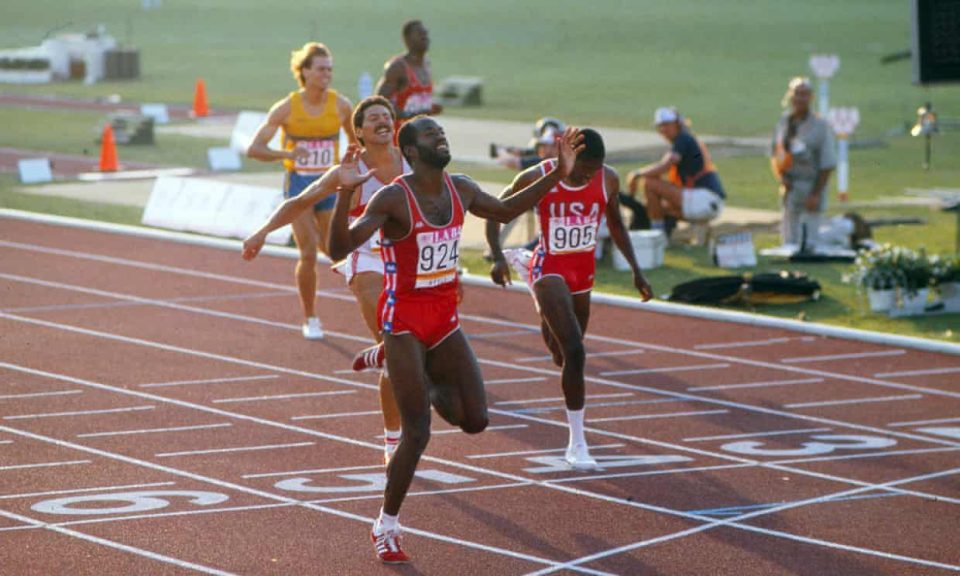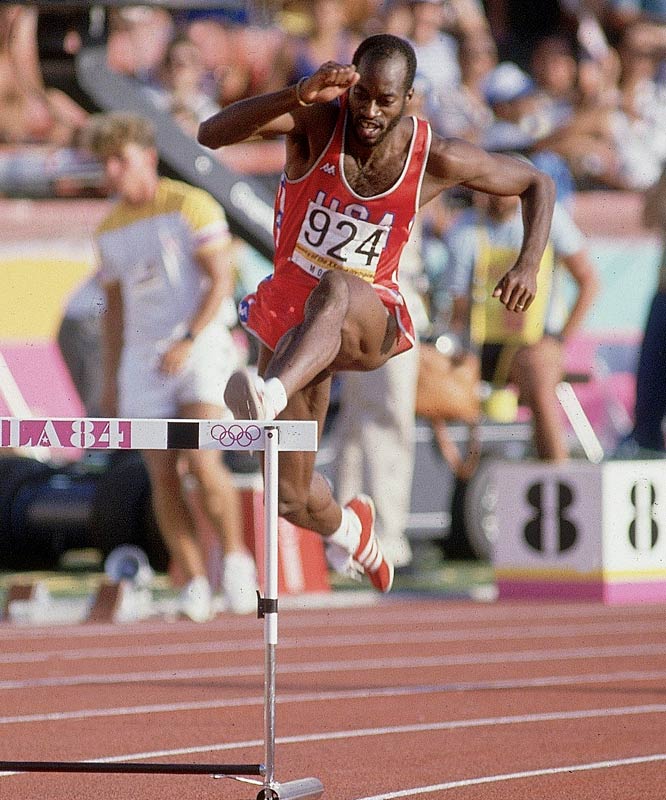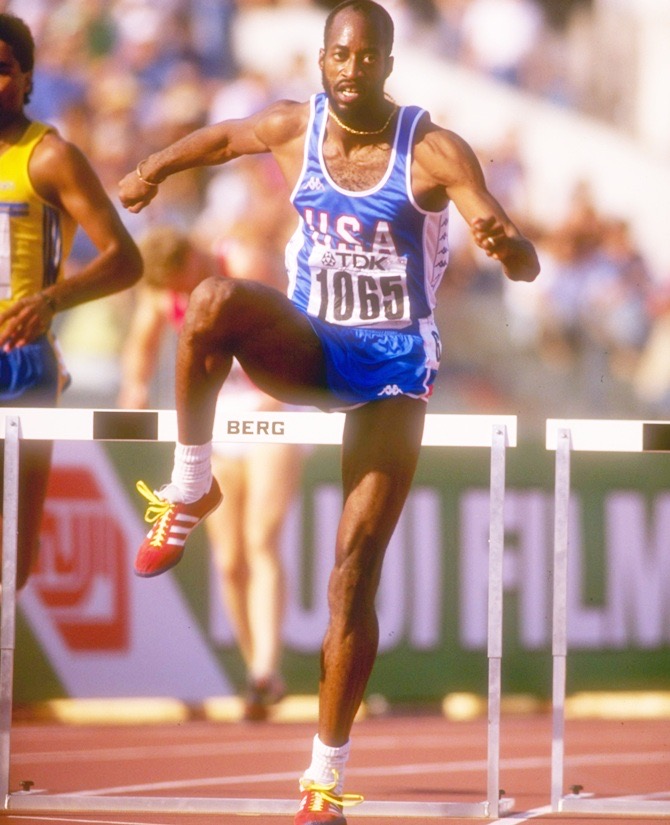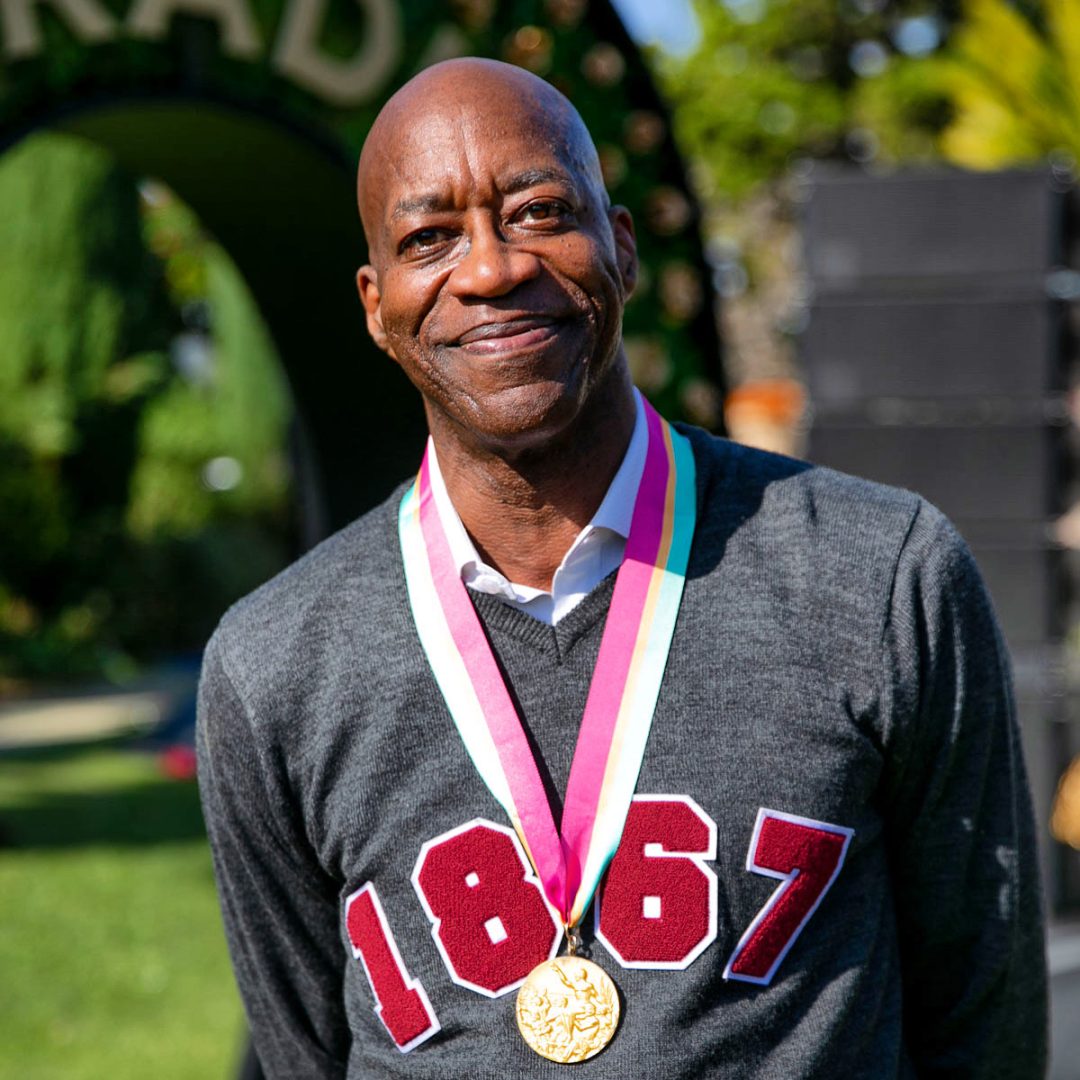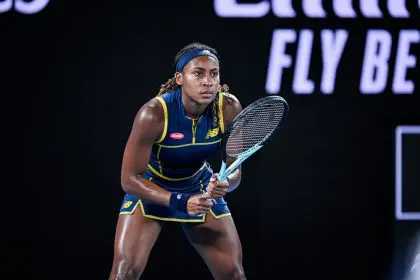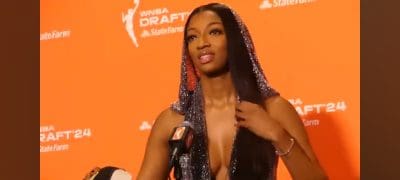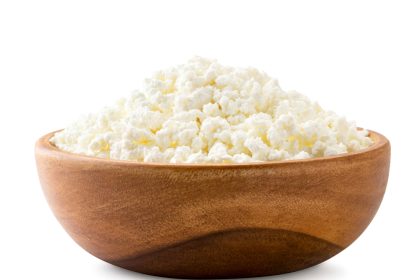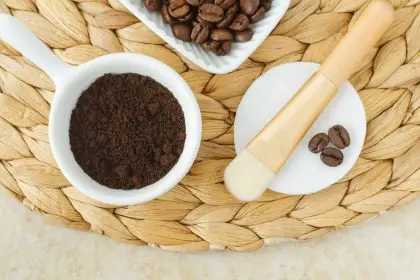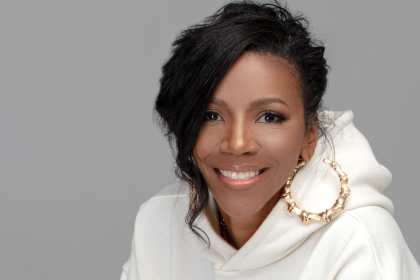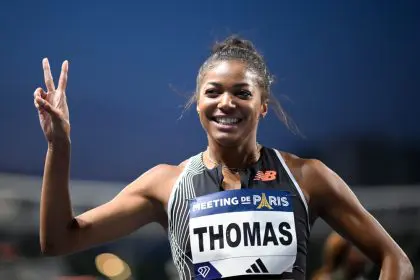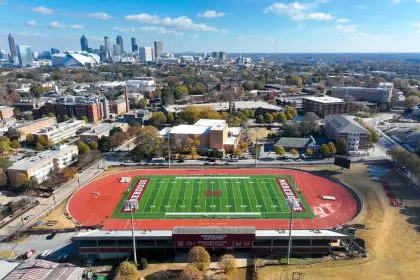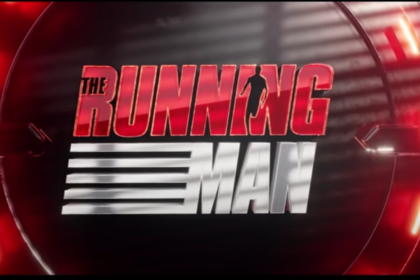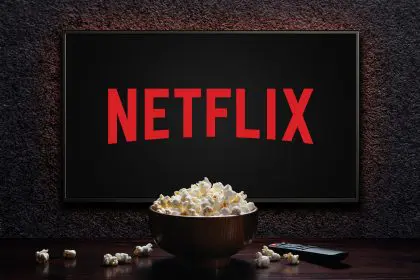Dr. Edwin Moses stands as one of track and field’s most dominant athletes, having won gold medals in the 400-meter hurdles at both the 1976 and 1984 Olympics. Between 1977 and 1987, the physics major from Morehouse College achieved an unprecedented 122 consecutive race victories, revolutionizing the sport with his signature 13-step technique between hurdles. Beyond his athletic prowess, Moses has dedicated his post-competition career to advocacy work, serving as the inaugural chairman of the Laureus World Sports Academy and championing anti-drug policies in athletics. Now, with his documentary “Moses – 13 Steps,” the 69-year-old legend reflects on his journey from an unrecruited walk-on to Olympic champion, his lasting impact on Morehouse College, and his philosophy on fitness and mental health.
What does it feel like to have a track named after you at your alma mater Morehouse College?
It feels great. I believe it was 1986, when Hugh Gloster finally constructed the track in the stadium, and they called me up and said they were going to name it after me, it was really great. Just two years ago, we got the track and the field refurbished with AstroTurf Fields. They tore out the track, tore out the football field, started over from scratch and built a very nice world record-certified track at Morehouse. So now we have a good track, and although my name is on it, it’s really about providing that kind of facility for the students going forward, not just those that run track, but the ones who want to get out and play lacrosse or rugby or flag football or whatever. So, it’s a legacy that lives, it’ll live a lot longer than I will, that’s for sure. I’m very honored.
How did you develop your love for physics and become academically brilliant?
When I was in high school, I guess I could classify myself as the original Urkel, glasses, they used to call me Mr. Magoo, Coke bottles, I had braces. I came from an education family, so my mom and dad were both educators, and my dad actually was a Tuskegee Airman back in the forties and also studied biology and chemistry at Kentucky State University, so I’m an HBCU kid. I must have been in third, fourth, fifth grade, I used to read my father’s biochemistry books, organic chemistry books, botany books. I had no idea what they were saying, but it piqued my interest in science.
By the time I graduated from high school, I’d gone to summer school every summer, I took five years of math in high school, two years of chemistry, two years of biology, a year of physics, and a year of computer science and went to a National Science Foundation program between my junior and senior year. I applied to Morehouse and a couple of other schools, and I ended up going to Morehouse sight unseen. But I was a scientific nerd, good in track, but completely unrecruitable, went to Morehouse as a walk-on. I worked out wherever I could for the whole five years that I was there. We never had a track.
How do you view your role as a torchbearer for future generations and HBCUs?
I’m very proud to be in the position that I am, and years ago, Charles Barkley said, “I don’t want to be a role model.” But having gone to Morehouse, and having gone through what I went through, becoming an Olympic champion with no track, being able to show the way to other people that things are possible if you can manifest it within your mind. I’ve done a lot of work all over the world with various charities and foundations, helping millions of kids overcome all kinds of obstacles, and it’s just something that we learn at Morehouse to do.
We’re steeped in ethics and morality and leadership because of the nature of the school and the kind of people that went to the school that really made the sacrifices. The John Hopes, Maynard Jacksons, the Dr. Martin Luther Kings. So, we’re just cut from that same cloth. I’ve gotten about 10 or 15 guys in and out of Morehouse, all except one or two that I’ve helped to get in, and helped sisters at Spelman as well. So it’s just an honor to be in that position, and it’s a calling.
What does receiving a legacy award mean to you, especially celebrating nearly 50 years since your first Olympic victory?
I’ll break it into two sections. The first one is the pure athletic part, and that just really comes down to hard work, developing a system, and when I started, I was unrecruitable. I stayed in track a lot longer than people that were a lot better than me, and I clawed my way to the front by starting at the back. I always lost until I won, but then once I started winning in 1976, no one that I beat ever beat me again. If you beat me once, that was it. So, I never lost to the same person twice.
We’re going to be celebrating 50 years next year. That particular life has taken on a direction of its own, gotten involved in charitable work overseas, things that I never expected to do. So it feels great to be able to be in a position to help other people, direct finances, direct foundations, and show people that you don’t have to be the best initially. But if you believe in yourself, and you’re willing to work hard, and my motto has always been, “You can be better than me today, but I will outwork you, all things being equal, and give you a really big challenge to keep up.”
Tell us about your “13 Steps” documentary and what makes it unique.
I wanted to do a film, and at the end of the day, after 70 hours of interviews, we could have done four different films. The directors are from Germany and the producer. So, it’s a film that’s come out of Germany because they are familiar with track and field. They know my history.
The challenge was really to tell the story of an African American man in the United States who went to an HBCU and talk about all the influences that are in the film. I reached out personally to Spike and Sam, because I’ve known them forever, and also Dr. Neil deGrasse Tyson, Michael Johnson, Tommie Smith. All these guys I had a personal connection with, and I told them about the story arc of the film.
It’s not just about running around the track. It’s not about winning gold medals. It’s about society, a young Urkel-like character, and how he’s navigated life and what life has presented him. Fifty percent of the film is what I’ve accomplished off of the track, and that was more important than the running part. Being in Germany, they had access to a lot more footage than having to go to the networks over here. So, they were able to extract a lot more footage, most of which I had never seen as a runner.
Why do you continue to be involved in charitable causes through organizations like AIDS Healthcare Foundation?
I was the inaugural chairman of an organization called the Laureus World Sports Academy and Awards for 16 years, based out of London. Nelson Mandela, being the patron of the organization, handpicked me to be the chairman of the organization. We started off with six projects in four different countries, and to this day we’ve probably got under our belts about 150-200 projects, 40-50 different countries. We’ve serviced and been able to use sports as a tool for social change to assist about three million kids in all those different countries.
We’ve dealt with kids who were orphans in South Africa during the World Cup in 2009, everyone’s parents were dead from HIV and AIDS. We’ve dealt with kids who come from the Bronx, favelas in Brazil, India, Ivory Coast, Ghana, South Africa, the worst parts of the world. We deal with kids in those regions and use sports to mobilize them, and build an infrastructure around them, to get them to go to school, get them involved in STEM, keep them off of the streets. So, I’ve been involved in doing that for a long time. So, this is just a natural fit for me.
What are your top three recommendations for people to improve their health and fitness?
Physical fitness, and it doesn’t have to be a world-class sport, but cardiovascular fitness, stretching, yoga, some weightlifting, bicycling, jogging, power walking. Anything you can do that’s going to give you some level of fitness is great.
For me, more importantly, when we got to the cafeteria at 6:30, it closed at 6, and there was no more food left, so I had to learn how to cook. I started out with the mini refrigerator and the hot plate in the room, and once I got my first apartment, then I upgraded, got my kitchen gear, and actually learned to cook. So, for me, I cook to this day all the time. For me, for the last 40-50 years I don’t have a lot of preservatives in my body, processed foods, I just stay away from that completely. If I want mayonnaise, I’ll make mayonnaise. If I want pasta sauce, I make it from scratch, and I have a garden, I do gardening.
I was 178, 182 when I was running, 40 years later, I’m right around 186, 188 after I eat, and so that’s just been my lifestyle. I think those are the most important things and stress reduction activities where you just have to cut off from the world sometimes, and really take care of yourself. I think that that’s really 100% attributable to a really good diet.
What does your mental diet consist of for maintaining mental stamina?
I think one of the more relaxing things that I do that’s really good for your spirits, good for your brain, good for your metabolism is something as simple as reading. I read a lot. You have to sit down and take the time to read and process, and it builds the synapses in your brain. I think that’s one of the most important things, and I’m glad that I grew up in a day when we didn’t have these devices that can suck up our time and waste it, and have your mind scrambled all over the place.
I really think that that’s a really big distraction, and I think we have a lot of mental health problems because of that, because people aren’t stable anymore, and their minds are never going one direction long enough to get some consistent balance or flow and level of concentration. So, I try to really minimize that and read a lot. I’ve got probably about 50 books that I bought in the last couple of years that I’ve read different parts of, I’m reading like five books at a time.
If you were giving a commencement speech, what would be your main message to the next generation?
I think, just off the top, “It’s a Small, Small, Small World.” International travel has been really good to me. I was 15 years old, sophomore in college, and my mom and dad sent me to Europe. That really changed the whole trajectory in my life. Academia, foreign languages and the ability to see the world.
So, fitness, the ability to see the world, and also, keeping up with world affairs is really major, and not a lot of people keep up with world affairs. Having traveled to 130 countries, I’ve been able to see a lot. See some of the best that the country has to offer, and definitely have seen the worst that you can ever imagine with my own eyes.
By having a foreign language and being able to travel and understanding that three quarters of the world are people that look like us gives you a different perspective on moving out, going into business and developing contacts. And you don’t have to limit yourself to your neighborhood, people that you know, and the environment that you grew up in.
What two books would you recommend everyone should read?
There’s one, “Caste,” it’s a really good book, and then there’s another book, “Epigenetics.” There’s a brother from Morehouse that wrote a book on epigenetics, and what psychological trauma, historical trauma, how that affects your genes, and the way you think, and your outlook on life, including your fitness. The brother graduated in the class of ’75. I just got the book. I haven’t started reading it, but it’s very esoteric.
